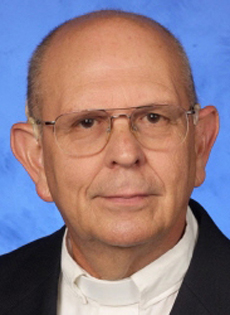
The utilitarian religions
Monday, May 24, 2021
*Fr. Eduardo Barrios, SJ
On April 11, 2021, a column was published in a Miami newspaper stating that "the COVID-19 pandemic has not brought about a religious revival." Its author acknowledges that he is not religious, but that he sees the usefulness of religions — albeit only the practical one. The columnist grants them ethical value. He calls them a "moral compass." Religions would contribute to the civilized organization of earthly life, but only that, he says. They would not offer a radical salvation beyond the present life. They would have nothing to say about what comes after death. The promise of Jesus, "In my Father’s house there are many dwelling places. If there were not, would I have told you that I am going to prepare a place for you?" (Jn 14:2), would have no meaning.
The author affirms that religions have lost membership. But according to the Pontifical Yearbook, at least the Catholic Church continues to grow worldwide, although not in Europe and North America; the greatest growth is in Africa and Asia. Between 2013 and 2018 the number of Catholics increased by 6%, and new dioceses were created. It is true that more priestly and religious vocations are needed to serve the world’s 1.3 million Catholics.
His diagnosis points out that religions have become "stuck on old dogmas and rituals" instead of "people’s spiritual improvement." He seems to use the word "dogma" in a pejorative sense. But it is valid. There can be no religion without a common creed. St. Paul preferred simpler expressions such as "sound doctrine" and "deposit of faith." The columnist also uses the word "rituals" as something negative, while Catholics look at worship as a joyful celebration of the sacraments. Those liturgies channel the supernatural goods necessary for the spiritual sustenance of the faithful. "Values and spirituality" are not opposed to "rituals" (prayer and worship); on the contrary, they are nourished by them.
Religions, the columnist adds, must "reinvent themselves" so as not to continue losing clients. So, churches could change doctrines, and parishioners would become like customers. In such religions, God would be the great absentee.
It seems that for this writer religions are a purely human phenomenon. He does not ask himself whether God really exists or whether God has revealed the truth about himself, about man and about the cosmos. Nor does he ask whether the faithful are interested in God, in His holy will, and in entering into communion with Him. It is known that in the Catholic Church there is a Supreme Pontiff, but many popes have explained that they do not have the authority to make substantial changes, because they are not above the Bible and the living Tradition of the Church. The popes and other pastoral agents feel that they are the custodians and transmitters of the legacy that Jesus gave to the first apostles. Christianity cannot be "reinvented" in its essentials.
Numbers matter to Christians because Jesus gave us this mission: "Go and make disciples of all nations..." (Mt. 28:19). But more important is the spiritual quality of the parishioners, whether they are many or few.
The 2,000-year history of Christianity has known ups and downs. The present may be a low point for organized religion. But there will undoubtedly be a religious renaissance, because sooner or later disenchantment will spread, as the inability of technology and purely material goods to satisfy the deepest yearnings of the human spirit becomes evident. Believers are confident in the Lord's promise: "Behold, I am with you always, until the end of the age." (Mt. 28:20)
This article was published first in Spanish in the May 2021 edition of La Voz Católica.


Comments from readers